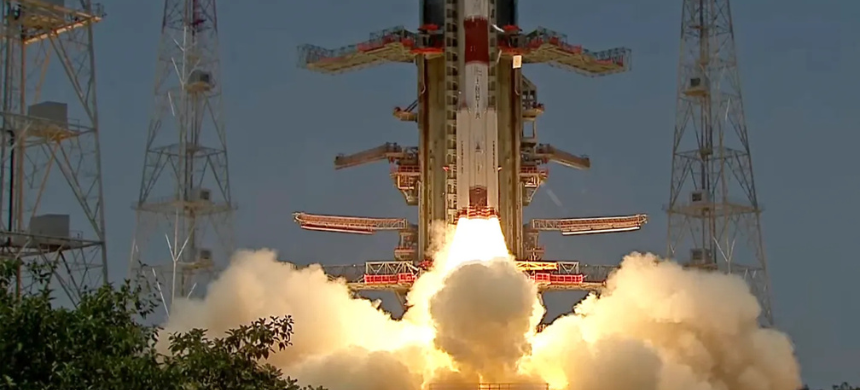India’s Earth-Observation Satellite Launch Fails Due to PSLV Third-Stage Anomaly
Sriharikota, India — India’s effort to enhance its remote sensing capabilities faced a setback early Sunday morning when the EOS-09 Earth-observation satellite was lost following a launch failure from the Satish Dhawan Space Centre.
The Indian Space Research Organisation (ISRO) launched the EOS-09 satellite aboard a Polar Satellite Launch Vehicle (PSLV) on Saturday at 8:29 p.m. EDT (5:59 a.m. IST on Sunday, May 18). However, about six minutes after liftoff, the mission failed to reach its intended sun-synchronous orbit due to an anomaly during the rocket’s third stage.
ISRO Chairman V. Narayanan said, “The PSLV is a four-stage vehicle. Up to the second stage, the performance was quite normal. The third stage motor started perfectly, but during its functioning, we observed an anomaly, and the mission could not be accomplished.” Further analysis is ongoing to determine the precise cause.
Read More: https://theneutral.pk/imf-warns-pakistan-requires-115-billion-in-external-funding-by-2030/
Telemetry data indicated a drop in velocity and deviation from the expected flight path during the third stage burn, resulting in a premature mission termination. ISRO confirmed a drop in chamber pressure in the third stage, which caused the satellite to fail to attain orbit.
This marks the first PSLV failure since August 2017, when the payload fairing failed to separate during a navigation satellite launch. The PSLV has had only two earlier failures in the 1990s.
Weighing 1,694 kilograms, EOS-09 was equipped with a synthetic aperture radar (SAR) to capture high-resolution images regardless of weather or lighting conditions. It was scheduled to be deployed at an altitude of 535 kilometers.
EOS-09, identical in design to the successful EOS-04 launched in 2022, was intended to provide continuous and reliable remote sensing data for various operational applications. Indian media reported that the satellite’s capabilities were significant for strategic surveillance, especially along borders with Pakistan and China.
The PSLV, regarded as the backbone of India’s space program, has completed over 60 missions since the 1990s. Despite its high reliability, Saturday’s failure underscores the inherent risks of space missions.
This was the first PSLV launch of 2025, following three launches annually over the past three years.











